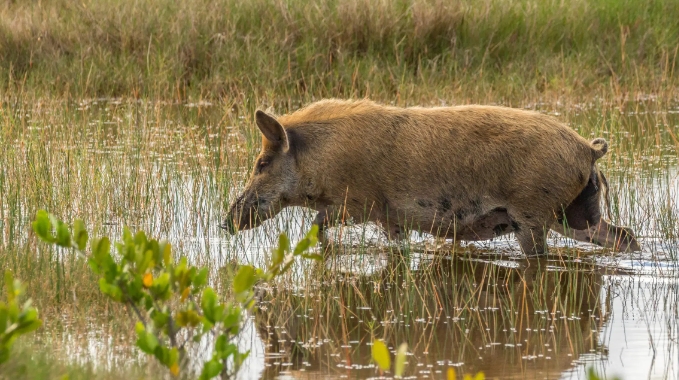Wild boars are opportunistic omnivores
Wild boars are opportunistic omnivores, meaning they will eat just about anything they can find. From fruits and nuts to insects and small mammals, these animals have a varied diet that allows them to thrive in a wide range of environments.
Plant matter is a large part of their diet
Wild boars consume a lot of plant matter, including roots, tubers, and bulbs. They also eat a variety of fruits, seeds, and nuts, making them an important seed disperser in the ecosystems where they live.
Insects and small animals are also on the menu
In addition to plant matter, wild boars also eat insects, worms, and other small animals. They use their strong snouts to root around in the soil, searching for tasty morsels to eat.
Scavenging is common
Wild boars are known to scavenge for food, especially in areas where resources are scarce. They will eat carrion, fish, and even garbage if it is available to them.
They can cause damage to crops
While wild boars play an important role in ecosystems as seed dispersers and scavengers, their appetite can also cause problems for farmers and gardeners. They can quickly decimate crops, digging up fields and orchards in search of food.
In conclusion, wild boars have a diverse diet that allows them to survive in a variety of habitats. While their foraging habits can be beneficial for ecosystems, they can also be a nuisance to humans when they cause damage to crops.

